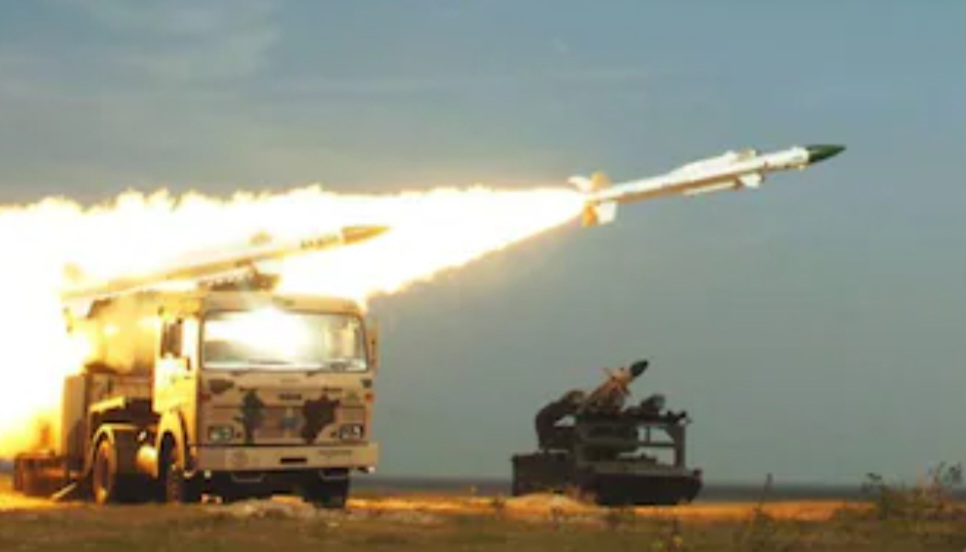By: Brigadier Anil John Alfred Pereira, SM (Retd)

As the geopolitical sands shift, India’s commitment must be to nurture the belief that true security and stature are earned, not gifted.
On May 10, 2025, just 88 hours after India launched Operation Sindoor, Pakistan stood battered militarily, humiliated diplomatically, and economically cornered. Precision Indian strikes damaged forward air bases, destroyed key terrorist infrastructure deep inside Pakistan, and exposed glaring failures in Chinese supplied radars and early warning systems. Public morale sank as the military brass scrambled to contain the fallout, painfully aware that their “iron brother” China had offered no overt support when it was needed most. Desperate to stave off collapse, Islamabad turned back to an old patron the United States.
American Lifeline
The United States stepped in with President Trump personally announcing the ceasefire to the world. Emergency packages from the IMF and World Bank stabilised Pakistan’s teetering economy and prevented default. Washington also fast-tracked the long-stalled F-16 upgrade and maintenance programme, shoring up Pakistan’s air combat readiness despite heavy losses. In a symbolic show of renewed favour, Pakistan’s Army Chief, Asim Munir, was elevated to Field Marshal. He was then welcomed to Washington for high-level talks with the US President signalling to the world that once again, America would not let Pakistan fail.
A History of Patronage
This rekindled embrace is hardly new. Post-independence in 1947, Pakistan quickly positioned itself as America’s frontline ally against Soviet expansion, receiving billions in military aid, modern weaponry, and economic support that propped up its fragile economy and emboldened its wars against India in 1965 and 1971. Washington’s patronage fuelled Pakistan military’s obsession with strategic parity with India and cemented a dependency that made the US a pillar of Islamabad’s regional leverage until trust ruptured dramatically after 9/11 when Osama bin Laden was found sheltered in Abbottabad under Pakistan’s protection.
‘Iron Brother’ Steps In
Disgraced in the eyes of the West, Pakistan pivoted to China, cultivating an ‘all-weather friendship’ romanticised as “higher than the mountains, deeper than the sea.” This was more than rhetoric with Beijing investing over US$ 60 billion through the China-Pakistan Economic Corridor (CPEC), transforming roads, railways, ports like Gwadar, and vital energy infrastructure. China became Pakistan’s largest arms supplier, providing nearly 80% of its modern weapon systems and steady diplomatic support in global forums. For two decades, China’s loans and largesse underwrote Pakistan’s economy and reinforced its leverage against India, filling the vacuum left by a wary West.
Operation Sindoor Exposes Cracks in Sino-Pak Nexus
However, Operation Sindoor starkly revealed the limits of this ‘iron brotherhood’. As Indian jets struck deep and airbases were damaged, Beijing offered no intervention, leaving Islamabad to fend for itself. This betrayal forced Pakistan back into America’s arms, highlighting an uncomfortable truth in Pakistan’s eyes, allies may change, but national survival demands constant courtship of stronger powers.
Impact on India
For India, Washington’s swift rescue of Pakistan, reopened old wounds. The supposedly US brokered ceasefire, financial bailouts, and revival of Pakistan’s F-16 fleet are seen in New Delhi as undermining of India’s gains and a validation of Pakistan’s disruptive tactics. Meanwhile, India’s deep defence and energy ties with Russia, refusal to commit to American F-16 and F-35 jets, and repeated delays in critical US supplies such as the GE-414 engines for India’s indigenous fighter project, Apache helicopters, MQ9 drones etc have compounded frustrations. Many in India now question whether Washington truly prioritises India’s security interests over Pakistan.
India’s immediate neighbourhood is also turning into a chessboard for Chinese and American influence. China is tightening its grip on Bangladesh, Nepal, Sri Lanka, Myanmar, and the Maldives through loans, mega projects, and diplomatic cover often targeting regimes weary of India’s might. The US, eager to check Beijing’s Belt and Road footprint, has stepped up its own outreach with aid, training, and security pacts. This double courtship has emboldened smaller neighbours to play both sides, fuelling subtle anti-India sentiment and eroding India’s natural regional leadership
India’s Road Ahead: Self-Reliance and Strategic Maturity
In an age of shifting alliances and great power rivalries, India’s clearest lesson is this that there are no permanent friends or enemies, only enduring national interests. To thrive securely, India must double down on indigenous defence production, strengthen economic resilience, and diversify critical supply chains. Diplomatic agility will be key to deepening trusted partnerships while preserving strategic autonomy to avoid becoming a pawn in someone else’s game. Equally vital is restoring neighbourhood goodwill through connectivity, fair economic ties, and respectful diplomacy to outcompete China’s chequebook and America’s overtures. India must also harden its cyber frontiers, invest in technological innovation, and build robust information warfare capabilities to protect its narrative space.
Security Earned, Not Gifted
As the sands of geopolitics shift once more, India must remember that true security and global stature as Viksit Bharat are built from within by nurturing self-belief, investing in capability and capacity, and putting national interests above fleeting friendships. Only then can India stand steady in an uncertain world, secure in the knowledge that its destiny is determined at home, not dictated abroad. As the geopolitical sands shift, India’s commitment must be to itself first nurturing the belief that true security and stature are earned, not gifted.


Wonderful analysis which brings to fore the critical actions urgently required by India
Well articulated. Conveys our real challenges.